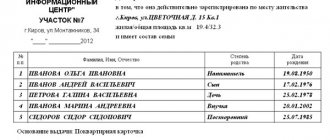What housing can be privatized
Not every piece of real estate in the Russian Federation, regardless of its type, can be privatized:
| Can be privatized | Cannot be privatized |
| Apartments belonging to the state or municipal housing stock. | Emergency housing. |
| Rooms in dormitories belonging to the housing stock. | Housing located in gated communities. |
| Office premises with the consent of the owner. | Rooms in dormitories that are not part of the housing stock (for example, service dormitories). |
| Residential buildings located on a non-privatized land plot. | Service apartments/houses, without the consent of the owner. |
Separately, it is necessary to say about service-type residential premises. Regardless of the basis on which they were transferred to the current owner (it is likely that they were received free of charge from the state), at the moment they are considered private property (possessions of a company/enterprise/organization) and therefore they cannot be privatized under any circumstances. grounds, if there is no consent of the current owner.
In addition, residential buildings also deserve attention. In the vast majority of cases, they have nothing to do with the state/municipal housing stock.
But the land may well belong to the state or local administration and be transferred for use on the basis of a lease agreement. In the latter case, privatization actually concerns the plot of land, and not the house, which is “trailered” to the territory acquired into ownership.
Can any housing be privatized?
Privatization is the process of transferring housing stock into the ownership of citizens, which began more than 20 years ago. It should be noted that even in the USSR and the RSFSR, housing was not only state-owned: many apartments and hostels were on the balance sheet of enterprises, private and collective farm construction was widespread in rural areas, there were cooperative apartments in cities... This entire fund was not and is not subject to privatization.
In addition, privatization is not allowed if the apartment or room:
- is in a state of danger of destruction;
- located in a town attached to a military unit;
- has the status of a hostel.
Consequently, all citizens living there do not have the right to privatization.
You can find more complete information on the topic in ConsultantPlus. Full and free access to the system for 2 days.
Who has the right to privatize housing
- The potential owner/owners must enter into a social tenancy or lease agreement with the local administration or state.
- Privatization is possible only once in a lifetime (for minors at the time of the first privatization - 2 times in a lifetime). As a result, in order to participate in the procedure, a person had to not previously participate in it.
- All persons who officially reside in a given premises can participate in privatization, even if at the time of the procedure they are serving in the army, serving a sentence, on a business trip, and so on.
The right to privatization: who has it and until when?
The following are subject to privatization:
- State and municipal apartments;
- Apartment-type dormitory, if the building is owned by the social education housing fund;
- Official living space, if citizens live on its territory and work at the same enterprise for more than 10 years.
The following cannot be privatized:
- Dormitories owned by specialized housing funds;
- Service living space, if citizens have lived there for less than 10 years;
- Buildings in disrepair;
- Apartments located in closed military camps.
All persons permanently residing (registered) on its territory and having a social tenancy agreement can participate in privatization. This right is also reserved for those who:
- Called up for military service;
- Works or studies abroad or in another city;
- Serving a prison sentence.
Privatization also applies to children with incapacitated citizens: the former undergo the procedure without fail, and their guardians act instead of the latter. The latter represent the interests of their wards and do not receive any rights to housing.
If a citizen has left the living space or lives there temporarily (rents), he cannot privatize this housing.
Not long ago, the deadline for free privatization was extended until March 1, 2020.
In 2020, the conditions for privatization did not change. Since 1991, the most changes have occurred with the rights of children: if previously they did not take part in the process, today they have equal rights with adults.
Rights acquired after privatization
Immediately after the ownership right is registered in Rosreestr (the last stage of privatization), the new home owners receive an apartment/room/land/house for their full and undivided use. They can:
- Pass it on by inheritance.
- Sell.
- Carry out redevelopment.
- Rent out and so on.
- Register as collateral with the bank.
Expert opinion
Kurtov Mikhail Sergeevich
Practitioner lawyer with 15 years of experience. Specializes in civil and family law. Author of dozens of articles on legal topics.
At the same time, they are required to pay real estate taxes, and also risk losing their property if they do not repay the bank loan for which the premises were secured.
FREE CONSULTATIONS are available for you! If you want to solve exactly your problem, then
:
- describe your situation to a lawyer in an online chat;
- write a question in the form below;
The law on the privatization of residential premises in the Russian Federation was adopted more than a quarter of a century ago, but still not everyone has exercised their right and a huge amount of real estate still belongs to the state. Today we will figure out who has the right to participate in privatization, what requirements the legislator places on them.
The procedure for privatization of a municipal apartment
The procedure for privatization of municipal housing is a labor-intensive and time-consuming process, since its essence lies in the preparation and collection of numerous documents, certificates, extracts and other official papers. In order to privatize living space, you will have to go through many offices and authorities or contact the MFC (multifunctional center), where a minimum package of documents is required, and all missing certificates and information are obtained by submitting official requests to certain authorities.
The procedure for privatization of municipal housing stock, established at the legislative level, in each individual case has a number of specific nuances and individual characteristics. Before proceeding with privatization and submitting an application to the relevant authorities, you need to pay close attention to the following issues:
- what requirements and conditions must be met to obtain the right to participate in privatization;
- what documents are needed to register a home as personal property, what is missing, what needs to be prepared and where can I get this or that certificate/extract;
- how certain documents should be drawn up;
- what is the validity period of each of the necessary documents;
- are there any nuances that may become an obstacle in the privatization process;
- identify circumstances that may directly or indirectly affect the outcome of the case;
- what legislative and regulatory acts regulate issues related to the solution of housing issues, including the privatization of municipal housing, etc.
First of all, applicants for the privatization of an apartment must fulfill all the conditions established by the legislation of the Russian Federation in order to exercise their right to obtain private ownership of a home and the right to dispose of it. These include:
- You must have a Social Tenancy Agreement on hand, which mentions the names of all applicants for privatization. If the contract is lost or is missing for some other unspecified reason, it must be restored. With this question, it is worth contacting the local authorities (municipality) with an application for the issuance of a new copy of the agreement;
- In order for an application for privatization to be considered in the manner prescribed by law, accompanying documents alone are not enough. You must also provide a check or receipt confirming payment of the state fee (a symbolic fee for the provision of public services);
- The apartment that they intend to privatize does not have any debts for utility services, which must also be confirmed by the appropriate document;
- There is information about the object of privatization in the Unified State Register of Real Estate, that is, it is listed in the unified state register;
- Applicants for privatization of an apartment meet all the criteria (over 14 years old, permanently reside in the apartment and are registered in it, etc.);
- The housing space is on the balance sheet of the municipality or the state and does not belong to one of the housing categories that are not covered by the Law “On the Privatization of the Housing Stock of the Russian Federation” No. 1541-1.
Important! If the applicant for privatization of the apartment and the object fully meet the above conditions, municipal authorities do not have the right to refuse to register ownership rights to residential property.
List of required documents
If a person who has expressed a desire to register a home as private property meets all the requirements, he should take care of the documents necessary for this procedure. Along with the application, the municipal authorities (local administration) must provide:
- a social tenancy agreement or an order for an apartment, on the basis of which a person lives at the specified address and is registered there;
- passports of all participants in the process (for minors - birth certificates);
- technical passport for the apartment (if there is none, you need to contact the Technical Inventory Bureau, where it will be produced);
- explication and floor plan of the house in which the privatized object is located;
- cadastral passport of the dwelling;
- a detailed extract from the house register with a list of all persons registered in this apartment, including minor children;
- documentary evidence of the absence of debts on utility bills;
- a certificate confirming the fact of non-use of the previous right to participate in privatization;
- marriage certificate (if the person applying for privatization is legally married);
- written and notarized consent to the privatization of housing from each registered citizen over 14 years of age;
- a written, notarized refusal to participate in privatization of everyone who has the right to privatization and does not want to take part in this for some of their own reasons;
- permission from the guardianship and trusteeship authorities to participate in the privatization of minors (the interests of children are represented by their parents, adoptive parents, guardians or trustees);
- death certificate (if one of the persons whose names are mentioned in the social tenancy agreement is no longer alive at the time of privatization), etc.
Important! If someone acts in the process on behalf of the other participants in the privatization, then a notarized power of attorney in the name of the representative must also be added to the package of documents.
Privatization of municipal housing occurs in several stages:
- Collection and preparation of documents;
- Submitting an application along with accompanying documents to the relevant authority;
- Consideration of the application and making a decision on privatization;
- Making a verdict;
- Signing the privatization agreement (if the verdict was positive);
- Registration of ownership rights to an object on the basis of a privatization agreement in Rosreestr;
- Obtaining an extract from the Unified State Register of Ownership of the apartment.
Need a lawyer
If you have a question about who the persons entitled to privatization are, and whether you are one of them, then contact the specialists of our website for a free consultation. In addition, they will be able to answer your other questions related to the conversion of public housing into private ownership.
In general, if you decide to tackle this rather complex process, then it is best to use the services of a professional lawyer specializing in housing law. He will be able to collect all the documents, determine the circle of persons who can participate in privatization, and apply on your behalf to all authorities.
This will help you save not only your energy, but also your time.
- Due to constant changes in legislation, regulations and judicial practice, sometimes we do not have time to update the information on the site
- In 90% of cases, your legal problem is individual, so independent protection of rights and basic options for resolving the situation may often not be suitable and will only lead to a more complicated process!
Therefore, contact our lawyer for a FREE consultation right now and get rid of problems in the future!
2. What documents are needed to privatize an apartment?
- a request (application) for the provision of a public service - can be completed by an employee during the application (or you can prepare it in advance by downloading the form);
- identification document of the applicant;
- identity document - for all members of the applicant’s family, persons registered in the privatized residential premises, persons who have the right to use this premises on social rental terms, who have reached the age of 14;
- an identity document of the applicant's representative, members of the applicant's family, persons registered in the privatized residential premises, persons who have the right to use this premises under social rent, who have reached the age of 14 (if the documents are submitted by a representative);
- a document confirming the authority of the representative (notarized power of attorney);
- social tenancy agreement for privatized residential premises - a copy of the applicant (except for cases of loss of the social tenancy agreement);
- an order for privatized residential premises or an extract from an order of an executive authority (if the applicant has one); in case of loss of the order - a copy of the order of the executive authority issued by the bodies authorized to provide information from the Archival Fund of the Russian Federation;
- a birth certificate or a document confirming the fact of birth and registration of a child, issued in the prescribed manner (in the case of the birth of a child on the territory of a foreign state);
- document confirming citizenship of the Russian Federation;
- an extract from the house register for the period from July 21, 1991 until arrival at this place of residence or a similar document replacing it;
- a document from an authorized body confirming the unused right to participate in privatization at the previous place of residence;
- a document confirming the authority of the above-mentioned body to issue a document confirming the unused right to participate in privatization at the previous place of residence (a copy certified by the body that issued it);
- written consent to privatization (or written refusal of privatization) of the occupied residential premises of the applicant, a member of the applicant’s family, another person registered in the privatized residential premises, a person who has the right to use this premises on the terms of social rent, who has reached the age of 14, and/or his legal representative or a person authorized in accordance with the established procedure. In this case, a notarized written refusal of privatization must be issued no later than 30 calendar days before the day of application for the provision of a public service.
Please note: in some cases (depending on the specific circumstances of your life) additional documents may be required.
Preparation of documents
Now we can take a closer look at the upcoming paperwork. The preparation of documents for privatization requires special attention. After all, the absence of the necessary papers 100% entails the refusal of the regional administration to privatize housing.
In general, the package of documents consists of the following components:
- social rental agreement;
- passports of all participating residents;
- extract from the house register;
- certificates from the BTI;
- application for privatization;
- real estate cadastral passport;
- marriage/divorce certificate;
- birth certificates of all minor children of the applicants;
- refusals from residents to participate in privatization;
- certificates stating that the applicants have not previously participated in the process under study;
- permission from the guardianship authorities to exclude minors from privatization;
- certificates of adoption/guardianship.
All these documents are presented not only in the form of originals. Applicants must bring copies of these. Notarization is required only if we are talking about refusals to participate in privatization.
Where should I submit documents?
- online on the official website of the Moscow Mayor mos.ru. You can submit documents online only if you live alone or if your family meets the following requirements:
- the family includes only adults who have legally resided in Moscow since July 21, 1991 or since birth;
— there are no disabled adults or orphans in the family;
Please note: the applicant's representative can only submit documents in person. You can check the status of your application on mos.ru. To do this, you need to know the case number.
When will the decision on privatization be ready?
Once your request has been registered, you will receive one of the following documents within 46 business days:
- transfer agreement with a note on state registration of the transfer of ownership of the privatized residential premises - issued on paper in person at;
- a decision to refuse to provide a public service is issued on paper in person, by mail, or sent electronically to the user’s personal account on mos.ru.
If you submitted documents electronically and if the decision on privatization is positive, at the time of signing the transfer agreement you will need to provide the following documents:
- social tenancy agreement for privatized residential premises;
- a warrant or an extract from an order of an executive authority;
- notarized documents, scanned copies of which were attached to the electronic request.
The law on the denationalization of housing stock has been in force in our country since 1991. Nevertheless, despite this, at the current time there are still unprivatized apartments in municipalities, and therefore the question of who has the right to privatize an apartment is relevant in the conditions of modern reality, therefore this rather pressing problem will be discussed in our article.
Who is eligible?
As a rule, only certain categories of citizens have the right to privatize an apartment. Let's look at each group separately.
If one of the residents does not want to privatize the apartment, then you can try to forcefully privatize the apartment through the court. Having a privatized apartment or share, the owner has the right to transfer his part to another person. Read here how you can convey it.
The privatization of an apartment can be challenged and declared invalid! Follow the link to find out when this is possible and how to proceed.
Who can participate under a rental agreement?
Persons with whom a social tenancy agreement for non-privatized municipal or state housing was directly concluded can participate in the privatization of an apartment.
An agreement has been drawn up in the name of these people, which means they are full participants in the privatization process.
As a rule, the contract is drawn up only for one person, a family member.
Also, the second group of persons who have the right to participate in the privatization of housing are family members of the citizen for whom the housing rental agreement is drawn up .
Minors
Minor children are the only group of people who are allowed to privatize an apartment twice.
The first time was at the age of eighteen , when they could become co-owners of the home with their parents or with one parent. Such citizens can carry out the privatization procedure a second time already at a conscious age, after reaching the age of majority .
Who else is eligible?
Many people believe that incompetent citizens cannot privatize an apartment. This is far from true.
In fact, incapacitated persons are full participants in privatization , however, they do not participate in this process independently, but through their direct representatives , that is, through guardians and trustees.
By the way, these people are subject to very strict supervision in the privatization procedure, since, first of all, they must act, first of all, in the interests of the incapacitated person.
This concludes the list of persons who have the right to participate in the privatization of an apartment. But who cannot take part in this procedure and, most importantly, why? We'll find out in the next paragraph.
Who cannot participate?
There are several circumstances under which you will most likely be denied privatization of real estate. We will consider the most common of them in the article.
- So, a person who not only has not entered into a social tenancy agreement , but is also not registered in it as a person living in the apartment, will not be allowed to participate in the privatization procedure.
- a person who is a relative of those living in socially rented housing and wants to become a full owner on the basis of family ties does not have the right to privatize an apartment
- Privatization will be denied to persons who have lived in a social rented apartment for less than one calendar year in accordance with the contract.
- Also, unscrupulous tenants .
Unscrupulous tenants include those citizens who violate norms of behavior in every possible way, arrange redevelopment in a municipal or state apartment, do not pay bills, and so on.
Privatization of an apartment
Privatization of an apartment is the transfer of ownership rights from the state, which until that moment was the sole owner of this residential premises, to a private individual. Often, this procedure for many Russians is the only possible way to acquire their own square meters, since such denationalization of the housing stock is carried out free of charge, that is, without contributing any amounts of money to the state treasury, except for a symbolic state duty.
Mass privatization of the housing stock in our country has been going on since 1991, but despite the vastness of our homeland, there are still citizens who have not taken advantage of their legal right and have not privatized their housing. Meanwhile, it is now not possible to postpone this issue for a long time, since today the last deadline has already been set by which our compatriots can privatize the apartments they once received from the state for free.
Advantages and disadvantages
Denationalization, of course, is a positive process, since as a result of its registration a person becomes the owner of a home. However, after acquiring ownership rights to residential premises, a citizen also has additional responsibilities, so the pros and cons of denationalization of housing should be considered in more detail.
The advantages of privatization include:
- Becoming a person the full owner of a residential premises , without paying any money. A citizen will need to spend money on paperwork and pay a purely symbolic state fee.
- After privatization, a person has the right to independently dispose of his newly acquired housing , that is, to sell or give it away.
- Privatized housing can act as collateral when a citizen receives credit funds.
- After privatization, older people can enter into a rental agreement , the collateral for which will be the denationalized housing premises.
- After privatization, it is much more difficult to evict a person from his own square meters , even if he fails to pay utility bills; such a debtor can only be required to pay the entire rent debt on the basis of a court decision.
The disadvantages of privatization include the following points:
- A citizen must pay all expenses for maintaining a living space out of his own pocket.
- The owner of a privatized apartment, among other things, must pay tax for his housing.
Due to the presence of these positive and negative aspects of privatization, before starting the denationalization procedure, all the pros and cons should be weighed. Only in this case the decision made will be the only correct one.
Procedure
The main document granting the right to privatize an apartment is a social tenancy agreement, however, in order to carry out this procedure from start to finish, it is necessary to perform a whole range of sequential actions. In order to clarify the situation, we will describe all the stages of denationalization step by step.
So, citizens who decide to transfer the housing in which they live on social rent into private ownership need to:
- Prepare a technical passport of the premises , which is prepared at the technical inventory bureau. The production time for this document is about one month.
- Obtain a certificate from the registration chamber stating that this apartment has not previously taken part in denationalization.
- Submit an application to the local administration about your desire to participate in privatization. If there are persons who refuse to participate in denationalization, notarized certificates of this fact must be attached to the application.
- Conclusion of an agreement on the transfer of residential premises into private ownership on the basis of the law on denationalization. This document is prepared by local administration specialists within two weeks, and it will subsequently serve as the basis for changing the owner of the residential premises.
- Applying to the registration chamber to obtain a certificate of ownership of residential premises.
How to privatize an apartment for an orphan?
The legislation “On additional guarantees for social support for orphans and children left without parental care” establishes that these categories of citizens should be provided with housing space on a priority basis.
Be sure to read it! List of documents that confirm family relationships
According to the provisions of this law, an apartment is provided to an orphan for rent from a special fund intended for these purposes. This social lease agreement is concluded for 5 years. After this period, the residential premises must be assigned to the tenant indefinitely.
However, in reality, many orphans are not provided with housing in accordance with the established procedure, and this causes a problem that can only be resolved at the state level.
Sequencing
At the initial stage, registration as a person in need of housing occurs. When the queue is up, the orphan must contact the municipal authority to exercise their right and collect documentation. After the reports are submitted, a special commission carries out an inspection. As a result of the inspection, the size of the premises that a citizen can count on is established. Then you need to prepare and conclude a social employment agreement.
The document will be valid for 5 years. After the specified period, a new social contract is drawn up. hiring In this case, the validity period of the act is not limited. The documents will need to be prepared again. Each party then signs the agreement. To obtain the right establishing documentation, you will need to contact Rosreestr. The act indicates the transfer of rights from the municipal body to the orphan. A period of 3 months is required for the formal transfer of ownership rights. However, it must be taken into account that in this situation the case may go to court. This occurs when a refusal is initially issued. The time frame for resolving the issue increases from 6 to 12 months.
Preparation of documents
Documents that are prepared for privatization must be submitted to the municipal authorities responsible for the management of the social municipal housing stock. The authorities carry out analytical actions and make decisions on the possibility or impossibility of privatization by transferring the rights to an apartment from the category of special to the category of social rent.
Since we are talking about housing being issued, Rosreestr authorities do not assign a cadastral number. The orphan carries out this action (obtaining a cadastral number in the BTI) during privatization actions. To do this, you must provide, in addition to the application:
- social tenancy agreement,
- a certificate confirming the allocation of this particular housing for use under a special lease agreement,
- a certificate stating that there is no encumbrance imposed on this residential premises,
- You must request a certificate from the HOA or other management company indicating that there were no debts for utility bills during the period of time when the social tenancy agreement was in effect,
- it is necessary to request a technical plan of the residential premises from the BTI,
- application for the issuance of information from the Unified State Register of Real Estate.
Privatization as such is the granting of ownership rights to a property. Possession, use, and disposal of residential premises arises only after privatization actions.
Application for privatization
Price
Privatization is considered free of charge indefinitely, but certain expenses will still have to be incurred:
| Purpose of payment | Sum |
| State duty for registration of property rights | 2000 rubles per tenant |
| Extract from the Unified State Register of Real Estate | From 300 rubles |
| Extract from the house register | From 200 rubles |
| Registration of a technical passport | 1000-5000 rubles |
| Refusal to participate in privatization | Up to 1000 rubles |
| Power of attorney for a representative | Up to 2000 rubles |
On average, per person, privatization costs about 3-4 thousand rubles or even less.
Deadlines
The period of privatization largely depends on the applicant himself, how quickly he will collect all the documents and how actively he will deal with this issue. On average, this takes about 4-5 months. With a lawyer, the period is usually reduced to 3 months or less. What time is spent on:
| Actions | Term |
| Search and preparation of documents | From 1 month to six months |
| Consideration of the application | Up to 2 months |
| Registration of ownership | About 1 month |
This does not include the five-year period of residence in the apartment, since in fact during this time privatization does not occur and even such a right does not arise.
Privatization freeze period
When a child receives housing from the state after leaving an orphanage or boarding school, a rather interesting adaptation procedure is provided, including for actions related to housing. It is established by law that apartments provided under special lease agreements are limited in terms of privatization. After all, even after leaving an institution for orphans, a citizen may also be involved in fraudulent activities related to the apartment. After 5 years, government agencies will issue an opinion on whether the citizen has passed the adaptation process or whether the employment period needs to be extended again.
Important! If you are an orphan and are privatizing an apartment, then you need to know that the state takes into account all the factors of the social situation of the citizen who received an apartment from the state to make the appropriate decision (for example, employment, legal marriage, the presence of children).
An important note regarding the recognition of an orphan as needing housing. So, for example, a citizen who has received an apartment enters an educational institution and begins to live in a dormitory, concluding a lease agreement for the allocated housing. If such a fact becomes known to the regulatory authorities, then the citizen’s right to use and own the apartment is lost. The residential premises are transferred further in line for receipt with the same “freezing” period.
The cost (payment of duties, collection of documents and provision of interests of the orphan) of privatization actions will in any case be zero.
Required documents
To register residential premises as private property on the basis of denationalization, you need to prepare the following package of documents:
- Social rent agreement. If it is not available, you should contact the settlement center at your place of residence.
- Technical certificate. It can be ordered from the Technical Inventory Bureau.
- Cadastral passport , which provides detailed information about the area of the apartment and its layout.
- An extract from the house register , for which everyone registered in the residential premises must apply, along with a social tenancy agreement, to their passport office. The validity period of this document is only fourteen days.
- Extract from the registration chamber for residential premises subject to denationalization.
- A certificate stating that previously each of the persons participating in privatization did not take advantage of this prerogative.
- Certificate of absence of debts on utility bills.
- Notarized refusal to participate in privatization of persons who, of their own free will, decided to renounce this right.
- Identification documents of each participant in privatization , which are a passport, and for minors - a birth certificate.
What documents are required for housing privatization?
As already stated above, the consent of all residents in a given residential premises is required.
You will also need the following documents:
- original documents confirming the identity of persons participating in privatization (passports, birth certificates, marriage certificates);
- technical passport of the apartment. This document is prepared by the BTI;
- cadastral passport;
- information about all persons registered in the apartment. This document is issued by the passport office or the Federal Migration Service;
- a document confirming the right to reside in this premises (usually this is a social tenancy agreement);
- a certificate confirming that there is no debt to pay for utilities (can be obtained from the management company);
- an extract from the Unified State Register of Rights to Real Estate, which confirms that the housing has not previously been privatized;
- receipt of payment of state duty;
- statement drawn up according to the sample.
Can I participate again?
Current legislation allows citizens of the Russian Federation to participate in privatization once in their lifetime (Article 11 of Federal Law No. 1541-I). Subsequent participation cannot be free of charge. Applicants for housing can buy it from the state for money.
The question arises, how can you privatize an apartment for free if the previous attempt has already been exhausted? Repeated participation is possible if at the time of privatization the person registered was a minor (from 0 to 18 years old). Children can participate one more time after they reach 18 years of age. But without the guardianship and consent of adults.
The second way to re-participate in privatization is to invalidate the previous transaction . For example, due to a violation of a child’s rights or non-compliance with a procedure.
Privatization can be declared invalid only in court, and only if there is strong evidence. If the court satisfies the claim, the transaction is annulled.
The apartment will again go to the municipality, and the participants will regain the right to free privatization again.
FOR FREE
- Due to frequent changes in legislation, information sometimes becomes outdated faster than we can update it on the website.
- All cases are very individual and depend on many factors. Basic information does not guarantee a solution to your specific problems.
That's why FREE expert consultants work for you around the clock!
- via the form (below), or via online chat
- Call the hotline:
Registration of a privatized apartment into shared ownership represents the transfer of residential premises, previously owned by the state or municipal housing stock, into the ownership of several persons participating in this transaction. Each of the owners, after registering the transfer of ownership, receives their own specific part (share) of the residential premises, which can:
- stand out in nature;
- expressed as a fraction or percentage.
Expert opinion
Kurtov Mikhail Sergeevich
Practitioner lawyer with 15 years of experience. Specializes in civil and family law. Author of dozens of articles on legal topics.
The procedure for privatization by shares is not particularly different from the general privatization of an apartment (for one owner), and represents the ownership and use of housing by agreement of all owners .
It is worth considering that it is not possible , since this housing is an indivisible piece of real estate.
Is it possible to deprive a share?
In Art. 252 of the Civil Code of the Russian Federation contains a provision that common real estate that belongs to several owners can be divided by agreement between them.
After privatization, the owner can be deprived of his share in the apartment only in the following cases:
- If the voluntary consent of the shareholder is reached. As a result of negotiations, the parties made a mutual decision that suits all owners.
- Deprivation of property rights based on a court decision . There are cases when the court makes a decision to terminate ownership rights or put up a share of the apartment for auction. This situation is possible if the debt on utility bills is large or equal to the cost of the share.
- Another option is the forced redemption of a small share. When a part of the owner’s property is small and cannot be realistically allocated, and in addition it does not have a significant interest in the use of the common property, the court may deprive the owner of a minor share, replacing it with an obligation of the remaining participants to pay him compensation .
There is a three-room apartment, the owners of which are Ivanov and Petrov. Ivanov has a share of 5/6, and Petrov 1/6.
Ivanov went to court demanding the forced redemption of Petrov’s share, on the basis of its insignificance. A commission specially organized by the court determined that the part of the apartments that belongs to Petrov is really insignificant, has no significant interest and cannot be separately allocated.
Petrov did not dispute the commission’s assessment and, having received his monetary compensation, ceased to be the owner of a minor share.








